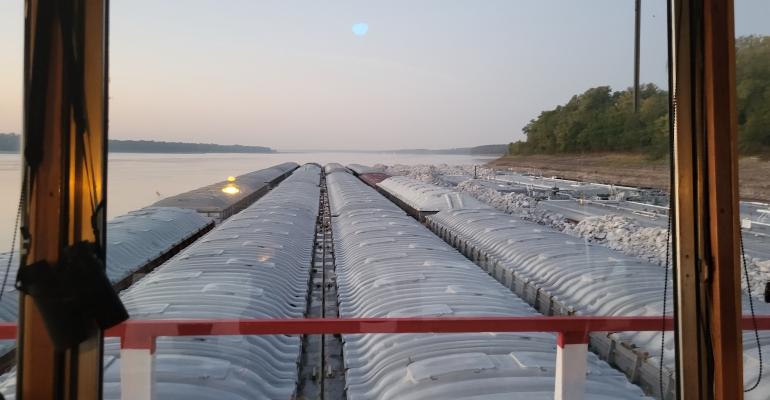No Free Lunches
 We all learned at a young age that there is no free lunch, but most Americans seem to have forgotten that simple truism when it comes to public spending on transportation infrastructure. A recent Rockefeller Foundation survey, which was republished in the AASHTO Journal, found that two-thirds of respondents felt that a greater investment is needed in transportation infrastructure. Fully 80 percent agreed that spending on highways and bridges would produce jobs and economic growth, but only 27 percent said that federal gas taxes should be raised to support this spending. Instead, most felt that some private investment was more desirable.
We all learned at a young age that there is no free lunch, but most Americans seem to have forgotten that simple truism when it comes to public spending on transportation infrastructure. A recent Rockefeller Foundation survey, which was republished in the AASHTO Journal, found that two-thirds of respondents felt that a greater investment is needed in transportation infrastructure. Fully 80 percent agreed that spending on highways and bridges would produce jobs and economic growth, but only 27 percent said that federal gas taxes should be raised to support this spending. Instead, most felt that some private investment was more desirable.
What the survey tells me is that we have done a horrible job of helping the public understand transportation needs, transportation funding, and the consequences of failing to invest in transportation infrastructure.
Private investment is great. It is a useful tool that can support our infrastructure needs, but private investors will only invest in projects and corridors where they are likely to find a return on their investment—that is, very high volume routes and bridges. To get that return, private investors will impose tolls. To make a profit and to cover the risk involved in such investments, the tolls will be set at a level to produce significantly more than the cost of the infrastructure. In other words, our economy will allocate more money to a privately financed facility than it would to a publicly financed facility. The method of payment and the amount of payment—as well as perhaps the incidence of payment—would change. A private facility would collect higher tolls from those that use the facility instead of lower taxes from all who use fuel or register their vehicles. In the end, however, those of us who consume and drive will still pay.
The other 99.9 percent of our highways and bridges that do not carry the volumes that allow toll facilities to work will continue to decline. We will all pay for those poor facilities through increased operating costs for our cars and trucks. Rough roads cause an increase in fuel use and more vehicle maintenance. A one percent reduction in fuel economy, a blown tire, or a front-end alignment will easily exceed a dime increase in the fuel tax.
So why do Americans not understand these simple facts? For one thing, politicians from both parties have spent that last 30 years convincing us that we have been abused by taxes and that the private sector can take care of anything. They, and we, have forgotten that governments were created to do things the private sector cannot or will not do. Those of us in the transportation business have made the problem worse by failing to communicate in simple, direct terms. We tend to couch things in fairly impenetrable jargon. We talk about backlogs, cost to maintain, and cost to improve. We usually are not sure of the meaning of such terms. We also talk about innovative financing, leverage, and public-private partnerships as if they were the solutions to problems that have yet to be defined.
